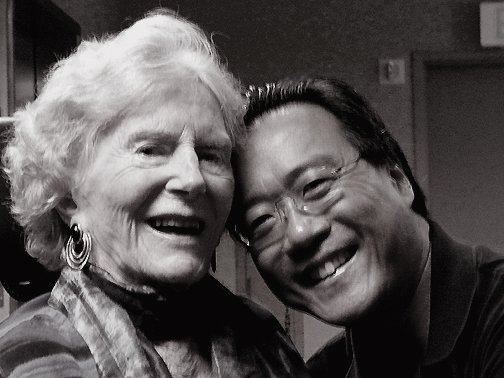My Personal Path-Mom
While my father was in the rehab facility, my mother began to unravel. In hindsight, she had been unraveling for years. As is true in many marriages, my father had been compensating for her. He had the brain; she had the brawn. The degree of her dementia plus my rabid denial of her true state of mind allowed me to preserve the status quo. Only two days into their being separated, we knew my mother couldn’t be on her own. She was no longer safe (our opinion, not hers). This became quite clear after she pushed her Life Alert button two times in one night and told the operator she’d heard a strange noise. As we had no other alternative at that moment, we moved her in with us.
I took her to a geriatric physician for an assessment. As she was asked the simplest of questions – who is the President; what county do we live in; what season is it, I felt like an externally quiet, inwardly desperate cheerleader. “Come on, mom, I know you know the answer.” But instead, she’d make a joke and change the subject, a behavior I’d witnessed for years. Yes, years. At the end of the assessment, the doctor ushered my mother out the door then quietly handed me a stack of brochures on Alzheimers and said “Good luck.” Good luck????? Are you kidding me? I had never felt so alone and so frightened. My father is dying; my mother is losing her mind and I need to go back to work?!
She lived with us for eight difficult weeks, unable to focus on any task or activity, unwilling to accept the help of a caretaker whom we hired and sleeping at very odd hours. At night, knowing I needed to sleep so I could work the next day, she busied herself by wandering the house and rummaging through drawers. We knew we needed to find a place for her to live, a community in which she could maintain whatever independence she could handle and one that offered assisted living and dementia care on-site. Her path and her needs, while clear to us, were antithetical to her desires.
Watching my mother lose touch with reality was frightening and sad, so sad. She knew she was losing control and she was scared to death. Doing my best to be present with her, to accept her dwindling capabilities while trying to help preserve the mind she had and to be honest about the type of care she was going to need was an exhausting roller coaster ride.
We found a place for her and decorated it, doing our best to surround her with her treasured art, familiar furniture and personal effects. It was clear that she was frightened and had absolutely no understanding of what was going on. “Why can’t I go home? Where am I? Why am I here? I’ll just take a taxi! I’m going home. Who are these people? Why are you doing this to me?” My guilt and pain were overwhelming. I tried to save my tears until I was out of sight, remembering all too clearly the day I left my daughter, then a toddler, at a home daycare clawing the screen door and crying as I drove off to work – then as a single mom. The feelings were awfully similar.
Interestingly enough, in moments of lucidity, my mother would say, “I should have moved to a place like this long ago. I’m too old now and have no energy to make new friends. This is too hard.”
Over the course of the next two years, my mother was on a long, slow, downhill ride. It included two trips to the emergency room, one followed by hospitalization, a move to a nursing center and ultimately a move to a dementia facility. The change of surroundings, procedures and people in each of these places was terrifying to her. I did the best I could each step of the way but the reality was I was learning on the fly, never having experienced the slow disappearance of someone I had known for so many years and loved so deeply. Long good-byes are the worst, difficult for the patient and difficult for the family.
My mother died in January 2008.
“Over the course of the next two years, my mother was on a long, slow, downhill ride. It included two trips to the emergency room, one followed by hospitalization, a move to a nursing center and ultimately a move to a dementia facility. The change of surroundings, procedures and people in each of these places was terrifying to her. I did the best I could each step of the way but the reality was I was learning on the fly, never having experienced the slow disappearance of someone I had known for so many years and loved so deeply. Long good-byes are the worst, difficult for the patient and difficult for the family.”
